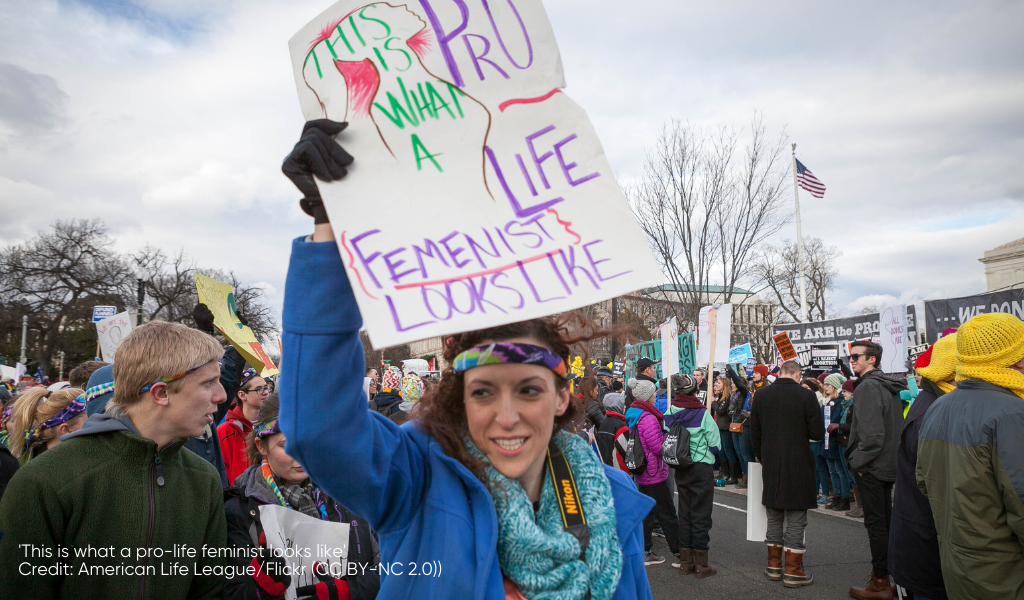The convergence of a global gender backlash, with the gendered impact of COVID-19, including the significant increase in the burden of unpaid care, and levels of domestic violence, presents both a rather bleak picture and an opportunity to galvanise for change. On International Women’s Day (IWD) we have an opportunity to celebrate the historical gains of the Women’s Rights movement, and to critically assess what is still to be achieved.

As a contribution towards this, and in response to calls from feminist scholars for new theoretical and analytical tools to help us understand the nature of contemporary anti-feminist and anti-queer politics, I have been developing the concept of ‘discourse capture’.
A silent coup?
This emerged from the idea of ‘state capture’, which for South Africans became a household term in 2016, when the extent to which Zuma’s government had been infiltrated and manipulated by the Gupta brothers became apparent.
The phenomenon of state capture was first identified in 2000 as an aberration in governance but was later taken up and reworked in South Africa. State capture differs from corruption in both its intention and scale. It has been referred to as a ‘silent coup’ (pdf); as a political project that sets up to remove the controls associated with the rule of law. It is this idea of an intentional ‘silent coup’ that helps frame the notion of ‘discourse capture’.
Discourse as a political battleground
‘Discourse capture’ acknowledges the importance of discourse as a political battleground, and recognises the extent to which discourse constructs and normalises objects of knowledge. Discourse dictates not only how ideas are put into practice, but WHICH ideas are in circulation. As Kelly Bean writes:
“Language produces material consequences, arguments create political realities…whether people live or die, have access to power or not, are allowed to marry or not, live in safe neighbourhoods or not is very much determined by the language used for or against them, the manner in which they have been defined…there are no shelters for women without the term ‘domestic violence’, for example; no equity training without the phrase ‘sexual harassment.'”
‘Discourse capture’ is particularly evident in anti-gender and anti-feminist politics, where the language of ‘rights’ and ‘freedom’ traditionally associated with a liberal agenda, is being mobilised by right-wing actors to undermine and roll back progressive legal statutes such as abortion rights, or constitutional protections for LGBTQI people.
Perhaps the ultimate example of discourse capture is the framing of ‘gender’ as an ideology, but there are many others. For example, the pro-life protestor from the United States labels herself ‘a true feminist’ in fighting for the rights of ‘unborn women’. In this context, Halva-Neubauer and Zeigler offer a fascinating analysis of the way in which pro-life forces have transformed their framing of the abortion issue. They highlight the transformation as that positions foetal rights against maternal rights, to one that emphasises the bond between the woman and the “child”; a rhetorical shift that attacks the central claim of mainstream pro-choice activists: that the foetus is not a person.
Undercover mythmaking
The dismantling of discursive systems that ‘discourse capture’ points to, is not a new idea, it might be considered a central component in conceptualising the gender backlash, call ‘undercover mythmaking’. Within the broader backlash literature, there are numerous existing references to the co-option and resignification of language, to the re-conceptualisation of progressive notions, and to the appropriation, or erosion, or purposeful dismantling of particular frames.
However, the concept of discourse capture goes beyond this initial recognition of a rhetorical device and provides a lens that systematically links these different forms and allows us to be more alert to their existence. Feminists have struggled to either create new discourse or, as Bean urges, to ‘reclaim the language of the movement and renounce its uses against women’.
Our hope as the ‘Countering Backlash’ programme, is that if feminists and gender justice activists can better understand the mechanisms of power being used in backlash, we will be better able to fight back.
